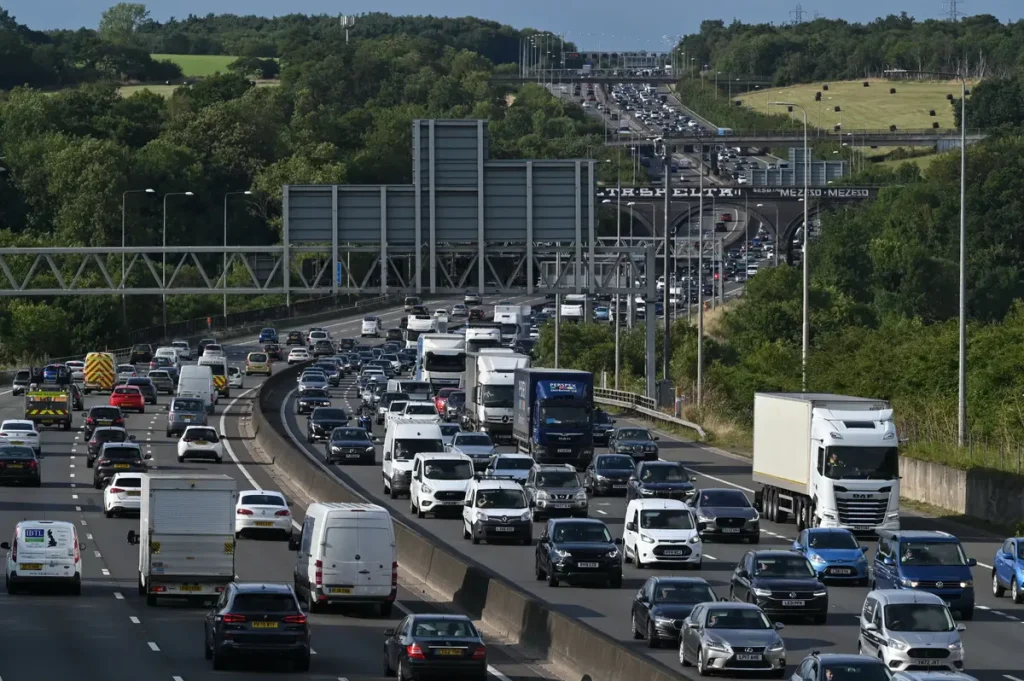Polling from the UK’s largest anti-ULEZ and anti-fuel-tax group of motorists has shown that its membership is now more likely to vote Labour than Tory, for the first time in its history.
The FairFuelUK cross-party pressure group, which has 1.7 million members across the UK, is currently dedicated to preventing what they perceive as unnecessary tax hikes stemming from a well-intentioned yet flawed ‘green’ agenda.
The focus of the group, which is run by Howard Cox, now a candidate for the London mayoral elections next year, extends to opposing new taxes, city entry bans for drivers, and potential additional costs on petrol and diesel imposed by the Treasury.
Polls back in July revealed Labour opening up a nine-point lead among car owners. The survey by Redfield and Wilton Strategies coincided with government measures to potentially restrict low-traffic neighbourhoods and 20mph zones.
It also came on the heels of a contentious by-election in Uxbridge, Boris Johnson’s former seat, where the Tories retained a narrow majority after campaigning against Labour’s Ultra-Low Emissions Zone (ULEZ) tax.
This, however, is the first time a poll has clearly indicated the same voter switch in such a condensed demographic of drivers who are likely to vote against measures such as a ban on internal combustion engines, or controversial ULEZ policies.
Supporters ‘Discouraged’ With Tories
“I never thought I’d see the day that Labour would be more electorally popular than the Tories on driving and transport issues. FairFuelUK Supporters are very discouraged with the Conservatives on crime and economy policies, and now significantly believe they don’t deserve the driver’s support at the ballot box either.”
Ahead of the chancellor’s Autumn Statement, due to be released tomorrow, Mr. Cox added, “I’m not even sure a 20p cut in fuel duty would turn them around. But if I was Jeremy Hunt I’d give that fiscal plan a real go.”
While voter intent toward Labour has clearly up-ticked in FairFuel’s data, the most noticeable impact is from the entry of Reform UK into the voter’s choice. The party now commands 12 percent of member’s intentions, which is in a similar line with recent polls across the wider UK population.
Mr. Cox said: “Reform UK is the new kid on the block, with FairFuelUK’s long-time Tory supporters migrating to Richard Tice’s common sense, going for growth plans. That’s why I, along with thousands in a political wilderness, now back him 100 percent.”
Amongst the Tory party, there will be much consideration over how to regain this traditional element of the vote. With a great deal of pressure to reduce tax, Chancellor Jeremy Hunt has committed to refrain from taking any actions in tomorrow’s Autumn Statement that could exacerbate inflation. Despite this, he has downplayed the likelihood of immediate income tax cuts.
MP Urges ‘CBAM’ Carbon Border
Reacting to the news ahead of the chancellor’s statement tomorrow, John Penrose, Conservative MP for Weston-super-Mare and a supporter of FairFuel UK, told The Epoch Times: “One of the things which I hope the chancellor will introduce is a Carbon Border Adjustment Mechanism [styled CBAM] like the one recommended by the cross-party Carbon Competitiveness Commission which I chair.”
Mr. Penrose pointed toward the potential a CBAM-style policy would lend to the creation of new jobs, saying, “It would boost British jobs by giving our manufacturers a level-playing field to compete against un-green foreign imports, make our exports miles more competitive abroad, and create headroom to cut fuel duty for motorists into the bargain.”
The government is currently looking at the possibility of introducing levies on imported carbon-intensive goods from countries with weaker climate regulations. The move is intended to address ‘carbon leakage’ concerns and protect vulnerable home industries like British steel.
While big fiscal announcements are normally saved for the annual March Budget, last year’s Autumn Statement brought significant developments for motorists, including the announcement of new Company Car Tax rates for 2025/2026 and beyond. Notably, it revealed that starting in 2025, electric vehicles would be subject to vehicle excise duty.
There was also a temporary concern, later rescinded, regarding a potential 12 pence per litre increase in fuel duty. As Mr. Hunt’s announcement looms tomorrow, measures that may further sway the voting intention of drivers will be under intense scrutiny.


